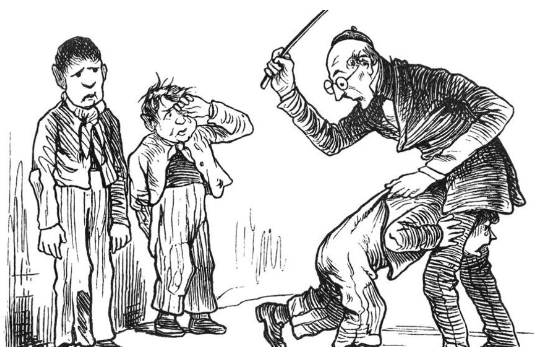People chose energy drinks for increased energy and fast recovery instead of sport drinks, but this behavior can lead to dire consequences
A vigorous 18-year-old male passed away while playing a game of basketball after consuming only two cans of RedBull (Brody D7). In Colorado Springs, high school students became sick subsequent to ingesting Spike Shooter, a highly caffeinated beverage (Parker-Pope). In Broward County, Florida, four middle school students were rushed to a hospital because of heart palpitations and sweating problems caused by drinking Redline, an energy drink (Parker-Pope). In Tigard, Oregon, teachers emailed parents informing them that the students who were consuming drinks were “literally drunk on a caffeine buzz” (Parker-Pope). Dakota Sailor, 18, drank two large Nos energy drinks, had a seizure and was hospitalized for five days. Sailor knows some kids who consume four to five energy drinks a day (Tanner).
The various ingredients added to energy drinks have little scientific verification to sustain its use and safety (McDonald).
Caffeine, a widely used ingredient in energy drinks, can be viewed as a drug (anything that changes how the body works can be considered a drug) because of its stimulation of the brain, nerves, stomach, intestines, heart, and circulatory system (McDonald).
Therefore, energy drinks that contain high doses of caffeine can disguise the awareness of inebriation and amplify the hazard of intoxicated driving, among other risky activities. Also, with the central nervous system being simulated, a person’s mood, health, and behaviors can be altered (Debenedetto).
There is a soaring amount of sugar, caffeine, ginseng, taurine, and/or B vitamins found in energy drinks. These drinks include ingredients that can increase the on-edge effects of the high content of caffeine or similar ingredients, which can cause dangerous, life damaging consequences relating to a young person’s blood pressure, heart palpitations, heart rate, brain performance, seizures, strokes and/or even death (Debenedetto 104).
B vitamins, another ingredient in most energy drinks, are essential enzymes needed for energy consumption. Therefore, they are mixed into the energy drinks to legitimize the massive amount of sugar. But with the abundance of protein in the American diet, this leads to a kind of sensory overload for the body, which is caused by all the ingredients coming in at one time (Brody D7).
These sugary drinks are contributing to the excess amount of sugar and calories in the diet of Americans youths (Centers for Disease Control and Prevention).
Companies market these largely untested and unregulated drinks for their stimulant effects on the body (McDonald). Some energy drinks promise increased energy, improved weight loss, and even better athletic performance (Jegtvig). Energy drinks act as a mild diuretic, which means it helps increase urination and encourages the elimination of water from the body, which can setback the absorption of glucose which will result in dehydration of the body (Debenedetto). Therefore, it’s falsely advertised.
In recent years, many energy drinks have been introduced to Canadian markets which in turn have poorly affected the diet of many Canadians because of their increased daily intake of caffeine (Health Canada). Health Canada is worried that energy drinks and the increase of caffeine will drastically change the health and behavior of many Canadians including adolescents (Health Canada). Health Canada’s main goal is to assess and manage the potential risks that energy drinks cause within the human body and lifestyle (Health Canada). An energy drink in Canada is no longer permitted to contain more than 180 milligrams of caffeine (Petrus). Canada recently categorized energy drinks as foods, instead of natural health products, which allows the health officials of Canada to control them (Petrus). New restrictions include that all energy drink companies must place labels on the drinks stating that it’s not recommended for adolescents and pregnant women, the ingredients, allergens, nutrition information, and that it mustn’t be combined with alcohol (Petrus).
If stricter policies are enforced on the companies that make energy drinks and people are educated more about the things they consume, then teens will prosper in health and knowledge.
Work Cited Page
Brody, Jane E.. “Scientists See Dangers in Energy Drinks.” New York Times.
SIRS. 1 Feb. 2011: p.D7. 02 December 2012. <http://www.nytimes.com/2011/02/01/health/01brody.html>
Tanner, Lindsey. Energy Drinks Can Be Dangerous for Teens, Report Says.
MSNBC. 14 Feb. 2011. 02 December.2012. <http://www.msnbc.msn.com/id/41577256/ns/heath-childrens health /t/energy-drinks-can-be-dangerous-teen-report-says/>
Centers of Disease Control and Prevention. Beverage Consumption among High School
Students-United States 2010. Jama.ama-assn. 2012. 02 December 2012. <http://www.cdc.gov/mmwr/preview/mmwrhtml/mm6023a2.htm>
Jegtvig, Shereen. Are Energy Drinks Bad for Kids? About. 16 Feb. 2012. 02 December 2012.
<http://nutrition.about.com/od/nutritionforchildren/f/Are-Energy-Drinks-Safe-For-Children-And-Teens.htm>
Parker-Pope, Tara. Energy Drinks Linked to Risky Behavior among Teenagers. The New York Times. 2008. 02 December 2012 <http://www.nytimes.com/2008/05/27/health/27iht-27well.13247828.html>
McDonald M.D., Alex M. Energy Drinks and Exercise. Powerbar. 28 Feb 2011. 02 December
2012. <http://www.powerbar.com/articles/109/energy-drinks-and-exercise.aspx>
Debenedette, Valerie. Caffeine. Springfield: Enslow Publishers. Inc. 1996. 02 December 2012
Petrus, Jillian. Should energy drinks be regulated? The Gazette. 8 Nov. 2011. 02 December 2012
http://thegazette.com/2011/11/08/should-energy-drinks-be-regulated/
Health Canada. Health Canada’s Proposed Approach to Managing Caffeinated Energy Drinks. Health Canada. 21 Oct. 2011.
02 December 2012. <http://www.hcsc.gc.ca/fnan/legislation/pol/energy-drinks-boissons-energisantes-





Keva Bagwell • Mar 21, 2013 at 9:32 pm
This is well written article. I enjoyed reading it. I will share with my middle school students for their persuasive powerpoint presentation project.
Thank you for the school friendly content.